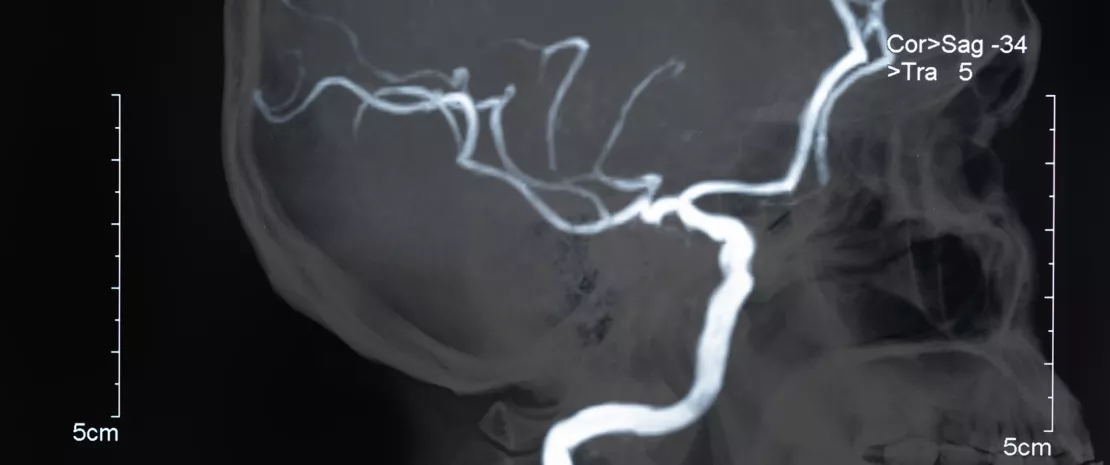Gut dysbiosis index to assess the prognosis of stroke
The Stroke Dysbiosis Index, designed by a Chinese team, correlates alterations of the gut microbiota and acute ischemic stroke prognosis. This innovating tool could lead to more tailored therapeutic options.
Lay public section
Find here your dedicated section
Sources
This article is based on scientific information

About this article
With nearly 25 million episodes per year, acute ischemic stroke is a major health challenge worldwide. Prognosis is currently very difficult to establish and could benefit from the identification of a risk factor for adverse progression. This observation led a Chinese team to develop the Stroke Dysbiosis Index (SDI), an index correlating stroke and gut dysbiosis. Its objective is to confirm the stroke and assess the severity of brain lesions as well as the risk of early complications.
Dysbiosis as a discriminating factor for stroke outcome
The SDI was designed based on the analysis of gut bacterial populations from 104 subjects who had an acute ischemic stroke, compared to 90 control subjects. The formula takes into account changes in levels of 18 bacterial genera. Among others, an increase in Enterobacteriaceae and Parabacteroides associated to a decrease in Faecalibacterium, Clostridiaceae and Lachnospira was observed in stroke patients whose SDI score was significantly higher than that of healthy subjects. The discriminative power of this model was validated with a second cohort of 83 stroke patients and 70 control subjects. A statistical method also demonstrated that SDI is a predictive indicator of both the severity of brain lesions and the risk of early complications.
Balanced microbiota = optimized recovery?
The second part of the study was performed in mice in order to clarify in vivo the relationship between gut microbiota and acute ischemic stroke sequelae. Middle cerebral artery occlusions were induced in animals who received fecal microbiota transplant from human patients with a low or high SDI. Result: brain damage worsened and levels of IL-17(proinflammatory cytokine)-producing g-δ T-cells increased in animals colonized by the bacteria typical of high-SDI pattern, compared to mice receiving transplants from patients with a low SDI. This proves that gut dysbiosis has a negative effect on the post-stroke prognosis. According to the team, the microbiota and its modulation through prebiotics or probiotics, are a therapeutic approach to be further explored in order to maximize the chances of recovery for post-stroke patients.









